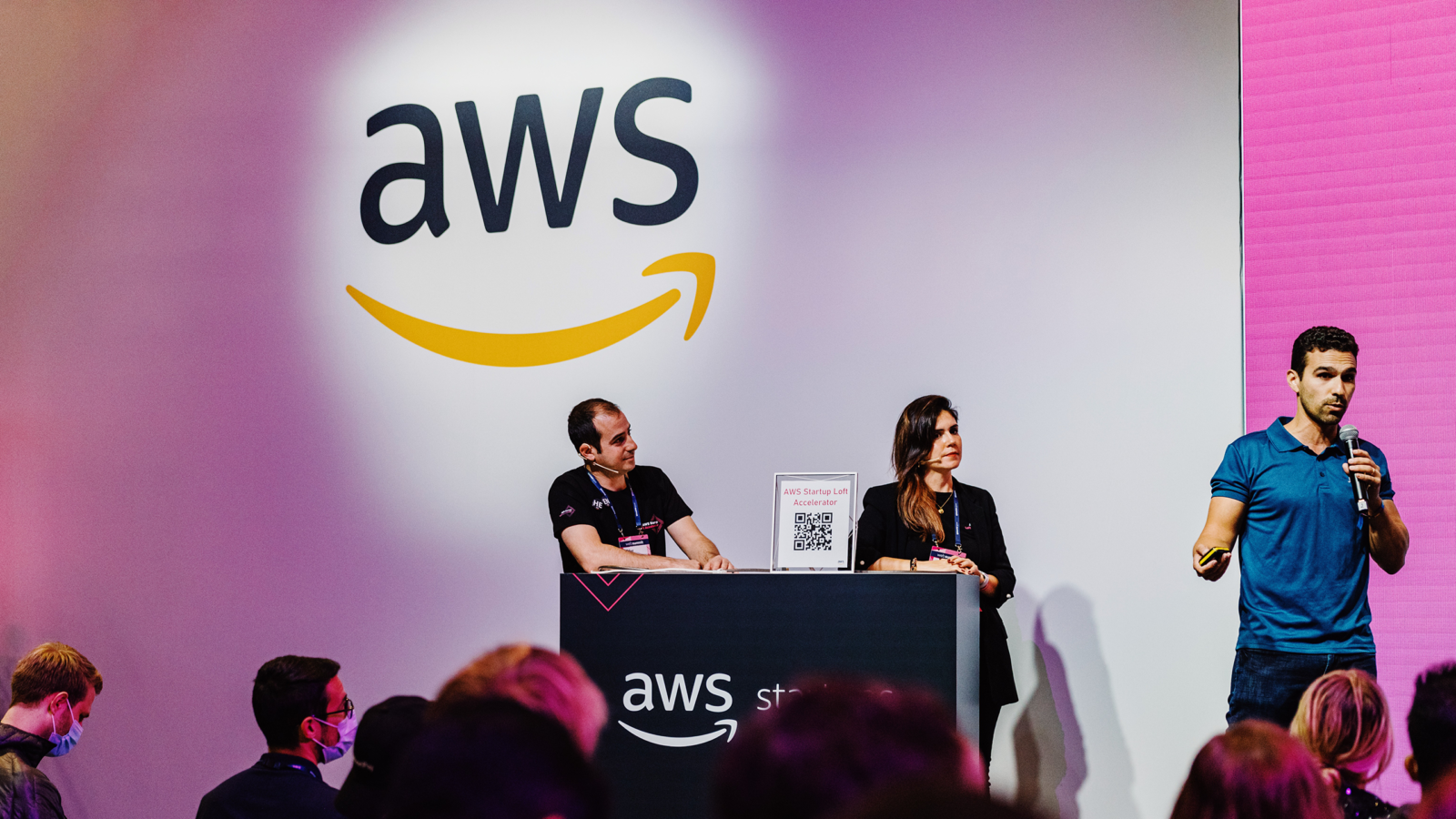Good morning.
It’s the new Forbes Billionaires list. Taylor’s Version.
On Tuesday, the international pop superstar finally charted on the yearly Forbes list of individuals with a ridiculous net worth. And who can be surprised? Last year, the 34-year-old sensation’s Eras Tour became the first tour ever to gross at least $1 billion, while the movie version scored another $261 million at the box office. The tour continues through December, a new album releases in a couple of weeks, and SiriusXM just debuted an entirely Swift-focused channel. She’s the latest but not the last great American dynasty.
Amazon Uses AI Race to Boost its Cloud Clout

For once Amazon might be feeling just the teensiest bit insecure.
In a bid to attract some new clients for its cloud service, Amazon’s cloud computing division AWS told Reuters on Tuesday that it is boosting its free credit program for startups. In addition to covering cloud computing costs, the program will also foot the bill for using large AI models made by other companies, including Meta, Mistral AI, and Cohere — but notably not the Microsoft-backed OpenAI. It’s just the latest tell that the AI arms race runs hand-in-hand with Big Tech’s fight for cloud dominance.
Cloud Burst
AWS has been Amazon’s profit whale for years, and it currently has the market share edge over Microsoft’s cloud business, Microsoft Azure. That status quo could be in danger of tipping. In February, CNBC reported that Azure is growing much faster than AWS, with analysts largely pointing to Microsoft’s AI offerings — not only is the company heavily invested in OpenAI, it has also integrated AI tech into Azure and kitted out its data centers with heavy-duty GPUs capable of handling the large amounts of computing power needed to run AI models.
Last week Amazon invested $2.75 billion in AI startup Anthropic following a $1.25 billion investment in September, so both Amazon and Microsoft have picked their respective horses for AI software — albeit Microsoft had a considerable head start. Through its free credit announcement, Amazon is going for some fairly old-school vertical integration:
- The free credits are being offered through a platform called Amazon Bedrock, which farms out large AI models to whoever wants to use them.
- Howard Wright, vice president and global head of startups at AWS, told Reuters that the new credits would drive revenue towards Anthropic, adding: “That’s part of the ecosystem building. We are unapologetic about that.”
“This is part of the strategy of the major cloud hyperscalers as part of their AI land grab efforts,” Sid Nag, vice president for cloud services and technologies at Gartner Research, told The Daily Upside.
Start ‘Em Up: Nag added that startups are prime candidates for AWS to get a bigger toehold further down the line. “Even if 10 percent of these startups become major technology players (kind of like the venture capital business model) in the future using the Hyperscalers/AWS’s AI offerings including a variety of LLM [large language model] providers including Anthropic — it has the potential for being big business for these cloud hyperscalers like Amazon/AWS,” Nag said. He noted that Google had adopted a similar strategy reeling startups into its cloud business (a distant third to AWS and Azure in terms of market share) long before the generative AI hype train left the station.
Here’s What Wall Street’s Insiders are Reading
Puck’s Bill Cohan, a former investment banker, is one of the most lauded financial journalists in the business. This evening, his subscriber-only private email, Dry Powder, will feature an exclusive conversation that will surely reverberate across Wall Street.
Bill is one of 16 industry-leading journalists who are partners at Puck, a new membership-driven media company owned and operated by the journalists themselves.
Readers of The Daily Upside can receive free access to tonight’s edition of Dry Powder by signing up for a 14-day free trial of Puck.
With your trial you’ll get full access to all of Puck’s reporting.
Some recent dispatches include…
- Bill’s red-pen analysis of Nelson Peltz’s Disney dissertation.
- Dylan Byers’ inside account of the Ronna Romney McDaniel tragicomedy at NBC News.
- Julia Ioffe’s brilliant dissection of how the Russian propaganda machine spun the horrific ISIS terror attack in Moscow.
Get access to all of this and more by starting your free trial today.
Tesla Hits a First Quarter Roadblock Like No Other
Being No. 1 isn’t all it’s cracked out to be.
Elon Musk’s Tesla wrangled the crown of the world’s top EV seller away from China’s BYD this quarter, but it’s not taking any victory laps. Its 2024 has been battered by slumping sales, a falling share price, and even acts of sabotage, with one team of analysts describing the quarter as a “train wreck into a brick wall quarter for Musk & Co.”
Coming Up Short
In the last quarter of 2023, Tesla sold about 485,000 vehicles, a record for the Austin, Texas-based company. But on Tuesday, Tesla reported that it sold just 387,000 cars in the first quarter, about 15% below expectations and an 8.5% drop year-over-year. The drop raised immediate red flags.
“While we were anticipating a bad 1Q, this was an unmitigated disaster 1Q that is hard to explain away,” Wedbush Securities analysts wrote in a note. “We view this as a seminal moment in the Tesla story for Musk to either turn this around and reverse the black eye 1Q performance. Otherwise, some darker days could clearly be ahead that could disrupt the long-term Tesla narrative.”
Much of Tesla’s pain is a result of its production misses — manufacturing roughly 433,000 cars, below Wall Street’s estimate of 453,000:
- Delays due to fighting on the Red Sea led Tesla to shut down production at its German factory, which can produce about 1,000 cars a day, for two weeks. Planned downtime last year at factories in China and Texas for equipment upgrades have also eaten into production totals.
- And the German factory hits kept coming. In early March, far-left arsonists calling themselves “Volcano Group” took responsibility for setting fire to an electrical tower outside Berlin. It shut down the nearby factory for a week, and the plant’s director said at the time it could result in losses in the “high hundreds of millions” of euros.
Tesla’s share price has plunged roughly 33% year-to-date, and is down more than 50% from two years ago.
Face That Runs the Place: Musk’s polarizing persona might also be scaring off would-be buyers. A recent survey conducted by market research firm Caliber and provided to Reuters found that consumers’ “consideration score” for Tesla fell to 31% in February, compared to a high of 70% in November 2021. Experts told the outlet part of that is due to customers’ iffy feelings toward the outspoken Musk. If Musk wants to win back the people, we recommend never hosting “Saturday Night Live” again.
Blackrock, Vanguard and State Street Face Probe Over Bank Stakes
They’re just not the passive type.
On Tuesday, The Wall Street Journal reported that the Federal Deposit Insurance Corporation is investigating Blackrock, Vanguard, and State Street over their large investment stakes in major US banks.
Passive Aggressive
The trio of asset managers, which collectively manage some $23 trillion, are among the top registered stakeholders in the four major US banks: JPMorgan Chase, Bank of America, Wells Fargo, and CitiBank. Blackrock and Vanguard each hold stakes in some of the banks above 10%, or enough to typically be considered a party with a controlling interest in a lender. All three firms have agreements with regulators — Blackrock and Vanguard with The Fed, and State Street with the FDIC — to remain passive investors, essentially vowing to not exert their influence outside of shareholder elections.
But that passivity is more or less self-policed, and one FDIC board member, Jonathan McKernan, told the WSJ he will soon propose new measures to better monitor the trio of firms. Other members of the five-person board have already signaled support. Still, the asset managers have pre-emptively made moves designed to limit their own influence:
- In 2022, facing criticism for its strong stance on ESG issues, Blackrock developed a new program that polls its retail investors on how the passive fund should vote in a company’s proxy battle — input that had previously been reserved solely for large institutional investors.
- Around the same time, Vanguard instituted a similar program giving retail investors a voice in how an investment fund votes in corporate meetings.
“We see no reason to institute duplicative regulations on passive investments in banking organizations without far more justification and proof that these investments are in fact harming banks and their depositors,” Lindsey Keljo, a managing director of Wall Street trade group the Securities Industry and Financial Markets Association, said in a statement.
Takes Three to Tango: Concern doesn’t stop at the banks. The three firms control more than one-fifth of the votes of the companies in the S&P 500, according to Harvard University law professor John Coates, or more than any three entities have held in history. Indeed, there’s a reason they’re so often called “The Big Three.”
Don’t Miss Out on a Multi-Trillion Dollar Industry. Get to know the alternative investment that Goldman Sachs is calling “the biggest opportunity set across the alternative space.” Private credit can mean diversified investments, shorter-term loans, and potentially higher yields. On Percent, you can get started with just $500.
Extra Upside
- Speak it: The New York Times will soon offer nearly all articles in audio form.
- Bet on it: FanDuel says Iowa-LSU was the biggest womens sports gambling event of all time.
- Chipped tooth: Intel discloses $7 billion loss in chip-making unit.

